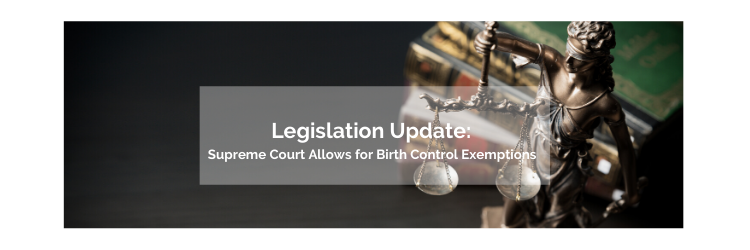

The Supreme Court ruled Wednesday that the U.S. Department of Health and Human Services (HHS) has the ability to create a religious and moral exemption to the Affordable Care Act’s (ACA) birth control mandate.
The opinion centers on two rules that the HHS has finalized over the ACA’s mandate that employers must cover birth control. The case involved a 2018 regulation from HHS exempting any employer with a religious or moral objection to contraception from a requirement that such coverage be included in an employee’s group health plan. The ACA requires group health plans to include “preventive care and screenings” as part of “minimal essential coverage”, but it left to HHS to define what services qualify. Since 2010, all FDA-approved contraceptives have been included.
The Supreme Court voted 7-2 to uphold Trump administration rules to allow employers with sincere moral or religious objections to deny employees access to free contraceptive coverage.
Justice Clarence Thomas, who authored the majority opinion, wrote that the Trump administration “had the authority to provide exemptions from the regulatory contraceptive requirements for employers with religious and conscientious objections.”
“The only question we face today is what the plain language of the statute authorizes,” Thomas wrote. “And the plain language of the statute clearly allows the Departments to create the preventive care standards as well as the religious and moral exemptions.”
Thomas’ opinion was joined by Chief Justice John Roberts and Justices Samuel Alito, Neil Gorsuch and Brett Kavanaugh. Justice Elena Kagan wrote separately to explain her vote with the majority, and was joined by Justice Stephen Breyer. Justices Ruth Bader Ginsburg and Sonia Sotomayor dissented.


